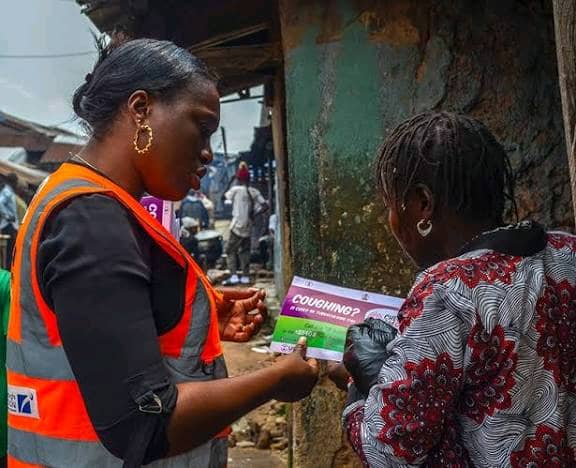Tuberculosis (TB) is a significant public health issue in Nigeria, ranking among the top countries with high TB burdens globally. The disease is caused by Mycobacterium tuberculosis and primarily affects the lungs, though it can also impact other parts of the body. Nigeria accounts for a substantial percentage of TB cases in Africa, and efforts to control the disease remain ongoing.
Epidemiology Nigeria is one of the 30 high TB burden countries identified by the World Health Organization (WHO). According to WHO estimates, Nigeria has one of the highest rates of TB infections worldwide, with thousands of new cases reported annually. The prevalence of multidrug-resistant tuberculosis (MDR-TB) is also a growing concern, making treatment more challenging.
Causes and risk factors of tuberculosis Tuberculosis (TB) is caused by the bacterium Mycobacterium tuberculosis and is primarily transmitted through airborne droplets. When an individual with active pulmonary TB coughs, sneezes, or talks, tiny infectious droplets are released into the air. Inhaling these droplets allows the bacteria to enter the lungs, where they may multiply and spread to other parts of the body through the bloodstream or lymphatic system.
High Population Density in Urban Areas : Overcrowded living conditions in major cities such as Lagos, Kano, and Abuja facilitate the spread of airborne diseases, including TB. In densely populated environments, close contact among individuals increases the likelihood of inhaling infectious droplets, leading to higher transmission rates. Poor Healthcare Infrastructure : Nigeria faces significant challenges in healthcare delivery, including inadequate diagnostic facilities, limited healthcare professionals, and insufficient funding for TB control programs. Many individuals, particularly in rural areas, lack access to prompt TB diagnosis and treatment, allowing the disease to spread unchecked. Limited Access to Quality Medical Care : Many Nigerians, especially those in remote or economically disadvantaged communities, struggle to access healthcare services due to financial constraints, long travel distances, and overburdened health facilities. As a result, TB cases often go undetected or untreated, increasing community transmission. Co-Infection with HIV/AIDS : HIV/AIDS significantly increases the risk of developing active TB. The virus weakens the immune system, making it difficult for the body to fight Mycobacterium tuberculosis. Nigeria has one of the highest HIV/AIDS burdens in Africa, and the interaction between TB and HIV has led to higher mortality rates among co-infected individuals. Malnutrition and Poverty : Poor nutrition weakens the immune system, making individuals more susceptible to TB infection and its progression from latent to active disease. Poverty also limits access to healthcare, nutritious food, and clean living environments, further exacerbating TB transmission and disease severity. Low Public Awareness and Delayed Diagnosis : Many people in Nigeria have limited knowledge about TB symptoms, transmission, and the importance of seeking medical care early. Misconceptions and stigma surrounding the disease often lead to delayed diagnosis and treatment. Without early detection, individuals with active TB unknowingly spread the infection to others. Drug Resistant TB and Treatment Non-Compliance : The emergence of multi drug-resistant TB (MDR-TB) poses a growing threat to TB control efforts. MDR-TB arises when patients do not complete their prescribed treatment regimen, allowing the bacteria to develop resistance to first line antibiotics. Poor adherence to medication is often due to inadequate healthcare supervision, financial constraints, or side effects of TB drugs.
Government and international response The Nigerian government in collaboration with international organizations such as WHO, the Global Fund, and the United States Agency for International Development (USAID), has implemented various strategies to combat TB.
== References ==
